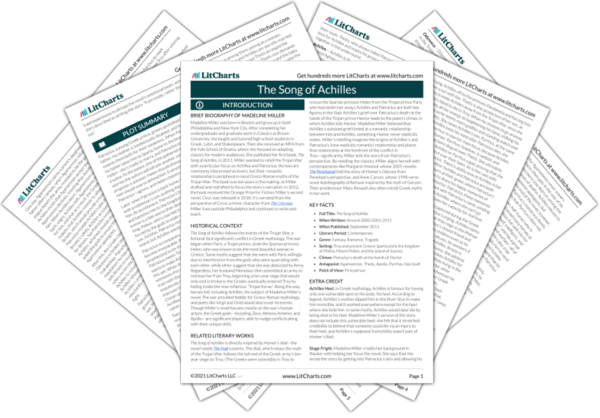AI ToolsNew
Tools to make learning and teaching easier
|
Previous
Chapter 21
|
The Song of Achilles: Chapter 22 Summary & Analysis |
Next
Chapter 23
|


Upgrade to unlock the analysis and theme tracking for all of The Song of AchillesThe Song of Achilles!
Get LitCharts A+